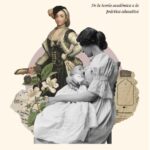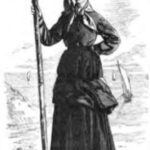6th Seminar on Medieval Archaeology, Art and History. The aim of this seminar is to reflect on the value of material culture in the construction of identities in frontier societies or in processes of acculturation. Through a comparative study of the material culture associated with the different religious groups and social strata of the Peninsula, as well as inventories of secular and religious buildings, archaeological finds and the production and circulation of objects, we will analyse attitudes such as reuse, the meaning of spolia, appropriation or resemantization, in a long-term spectrum. Only through a multidisciplinary and diachronic approach can we understand these phenomena and advance our knowledge of our heritage. Topics such as the household furnishings of Mudejars, Old Christians and Moors; the trade and exchange of objects (textiles, books, weapons, scientific equipment, etc.) in the Mediterranean context, with its centres of production and consumption; spolia, the destruction and reuse of these objects, and the relations between centres of power and centres of knowledge through their material culture will be dealt with.
Collection: Multimedia
Project: 11. Science and culture as representation in Europe., 3. Rural world and urban world in the formation of the European identity.
Chronology: -
Scope: Secondary Education
Link: https://www.youtube.com/playlist?list=PLSTkYuU6iPdm11fcuw7L1MnQvvaypStqO
Resource type: Playlist on youtube
Format: Multimedia
Owner: Arqueological National Museum of Spain (MAN) (Modernalia)
Abstract: 6th Seminar on Medieval Archaeology, Art and History. The aim of this seminar is to reflect on the value of material culture in the construction of identities in frontier societies or in processes of acculturation. Through a comparative study of the material culture associated with the different religious groups and social strata of the Peninsula, as well as inventories of secular and religious buildings, archaeological finds and the production and circulation of objects, we will analyse attitudes such as reuse, the meaning of spolia, appropriation or resemantization, in a long-term spectrum. Only through a multidisciplinary and diachronic approach can we understand these phenomena and advance our knowledge of our heritage. Topics such as the household furnishings of Mudejars, Old Christians and Moors; the trade and exchange of objects (textiles, books, weapons, scientific equipment, etc.) in the Mediterranean context, with its centres of production and consumption; spolia, the destruction and reuse of these objects, and the relations between centres of power and centres of knowledge through their material culture will be dealt with.
Tags





